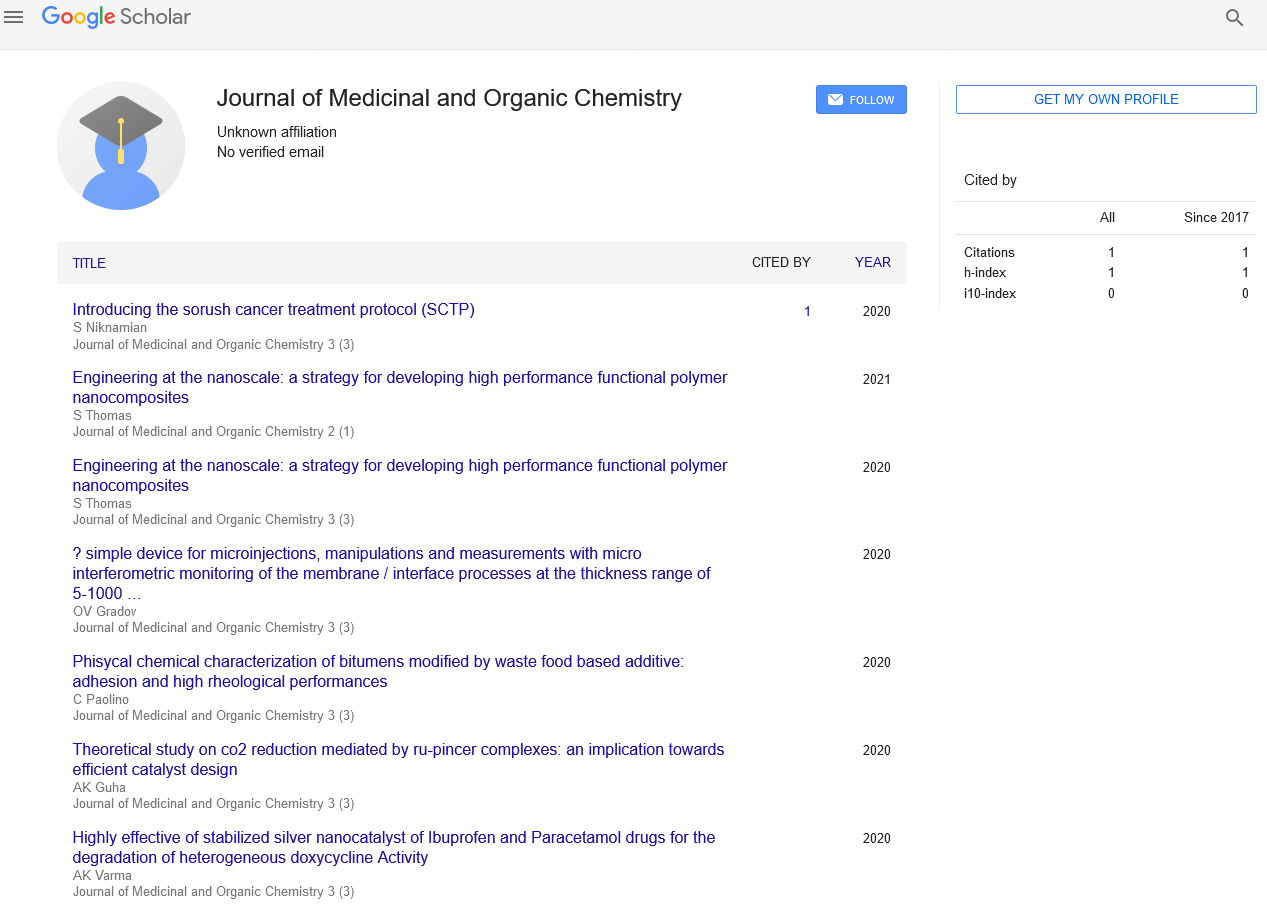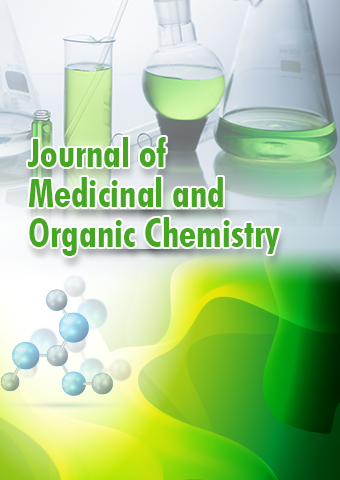Perspective - Journal of Medicinal and Organic Chemistry (2023) Volume 6, Issue 5
Exploring the Science of Nutrition: Nourishing Body and Mind
- Corresponding Author:
- Nicholas Nisbett
Department of Nutrition,
University of Surex,
Brighton,
UK
E-mail: n.nisbet@ids.ac.uk
Received: 15-Sep-2023, Manuscript No. JMOC-23-118854; Editor assigned: 20-Sep-2023, PreQC No. JMOC-23-118854 (PQ); Reviewed: 04-Oct-2023, QC No. JMOC-23-118854; Revised: 19-Oct-2023, Manuscript No. JMOC-23-118854 (R); Published: 27-Oct-2023, DOI: 10.37532/jmoc.2023.6(5).125-126
Introduction
Nutrition is a fundamental aspect of our daily lives, impacting our health and well-being in profound ways. The science of nutrition delves into the study of food, its components, and their effects on our bodies. In this we will explore the critical role of nutrition in maintaining health, the historical milestones that shaped our understanding of nutrition, the key components of a balanced diet, and the current trends and challenges in the field of nutrition.
Description
Nutrition: The cornerstone of health
Nutrition is the science that examines the interaction between food, nutrients, and our bodies. It focuses on the processes of ingestion, digestion, absorption, metabolism and elimination of food substances, as well as their effects on health and disease. A well-balanced diet is essential for overall well-being, as it provides the necessary nutrients required for growth, maintenance, and proper functioning of the body.
Historical milestones in nutrition
Discovery of vitamins (early 20th century): The identification of essential vitamins, such as vitamin C by Albert Szent-Gyorgyi and vitamin D by Edward Mellanby, marked a turning point in understanding the role of specific nutrients in preventing deficiency diseases.
The discovery of nutritional requirements: Casimir Funk coined the term “vitamin” and demonstrated that a deficiency of specific nutrients, such as thiamine (vitamin B1), caused diseases like beriberi. These findings led to the understanding of essential nutrients and their impact on health.
World War II: Nutrition research and rationing: World War II led to extensive nutrition research, as governments rationed food supplies and sought to provide troops with optimal nutrition. These efforts helped advance knowledge about nutrition and its role in maintaining health.
The obesity epidemic (20th and 21st centuries): The global rise in obesity has shifted the focus of nutrition from preventing deficiency diseases to addressing the challenges of excess calorie consumption and related health issues, including diabetes, heart disease, and certain cancers.
Key components of a balanced diet
A balanced diet includes a variety of essential nutrients, each with its unique role in maintaining health. These key components of a balanced diet are:
Carbohydrates: Carbohydrates are the primary source of energy for the body. They include sugars, starches, and dietary fiber found in foods like grains, fruits, and vegetables.
Proteins: Proteins are crucial for growth, repair, and the maintenance of body tissues. They are found in sources like meat, dairy, legumes, and nuts.
Fats: Dietary fats are important for energy storage, insulation, and the absorption of fat-soluble vitamins. Healthy fat sources include avocados, nuts, seeds, and olive oil.
Vitamins: Vitamins are organic compounds that are necessary for various biochemical processes in the body. They include vitamins A, C, D, and many others, each with specific roles i n maintaining health.
Minerals: Minerals, such as calcium, iron, and magnesium, play essential roles in bone health, oxygen transport, and numerous metabolic processes.
Fiber: Dietary fiber, found in whole grains, fruits, and vegetables, supports digestion, helps control blood sugar levels, and contributes to a feeling of fullness.
Water: Water is vital for overall health. It is involved in almost every bodily function, from digestion to temperature regulation.
Applications of nutrition
Nutrition has far-reaching applications in various fields, influencing both individual health and public policy. Some key applications include:
Clinical nutrition: In healthcare, clinical nutrition is used to address specific medical conditions, such as diabetes, obesity, and malnutrition. Dietitians and nutritionists work with patients to develop personalized dietary plans.
Public health: Nutrition plays a critical role in public health initiatives, including efforts to reduce obesity, improve maternal and child nutrition, and combat malnutrition in underserved communities.
Sports and exercise nutrition: Athletes and fitness enthusiasts rely on nutrition to enhance performance, support muscle recovery, and optimize their training routines.
Food industry: The food industry relies on nutrition science to develop and market products that meet consumer demand for healthier and more sustainable food choices.
Current trends and challenges in nutrition
Nutrition and aging: As populations age, there is a growing interest in nutrition and its role in supporting healthy aging and managing agerelated conditions.
Sustainable nutrition: The environmental impact of food production and consumption is a critical consideration in nutrition. Sustainable eating patterns, such as plant-based diets, are gaining popularity.
Nutrition and mental health: There is a growing interest in the connection between nutrition and mental health, with research exploring the impact of diet on conditions like depression and anxiety.
Global nutrition challenges: Worldwide, issues like food insecurity, malnutrition, and obesity persist. Addressing these challenges requires coordinated efforts at the global and local levels.
Food allergies and intolerances: The prevalence of food allergies and intolerances is increasing, necessitating dietary adjustments and research into potential treatments.
Conclusion
Nutrition is the cornerstone of health and wellbeing. Its historical milestones, key components of a balanced diet, applications in various fields, and current trends and challenges underscore its pivotal role in individual and public health. The science of nutrition empowers us to make informed dietary choices, whether it’s for our personal well-being, the health of our communities, or the betterment of our planet. In the ongoing journey to promote health and wellbeing, nutrition remains an invaluable guide, pointing the way to a healthier, more nourished future.

